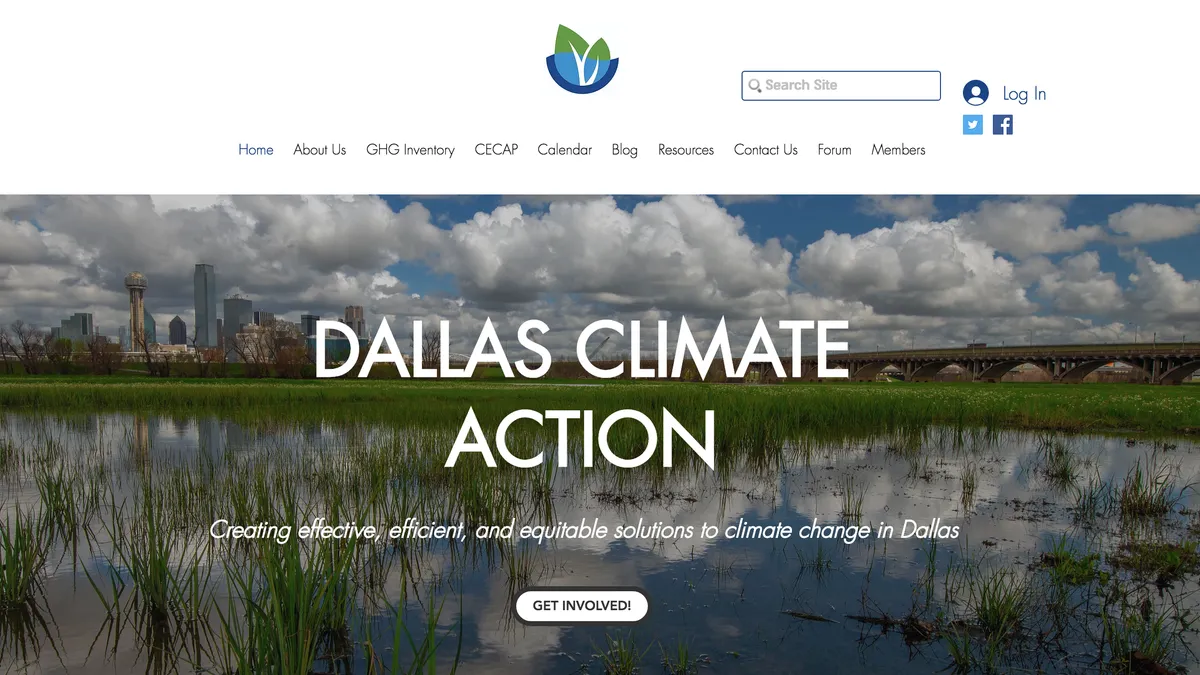Dive Brief:
- Dallas has launched a climate action website for the public to find information about and track the progress of the city's environmental and climate efforts.
- The site will include background data, a document library, a schedule of events related to environmental and climate planning, and the opportunity for the public to engage with staff at the Dallas Office of Environmental Quality & Sustainability (DEQS).
- The website is a complement to the city's upcoming climate action plan. The Dallas City Council passed a climate change resolution at its Jan. 23 meeting, instructing DEQS to develop the Comprehensive Environmental and Climate Action Plan (CECAP), for which it authorized a consulting services contract with AECOM, with a cap of just under $500,000.
Dive Insight:
Texas has been hard hit by weather-related disasters believed to be exacerbated by climate change. Hurricane Harvey provided the most widely memorable example when it hit Houston in 2017, and in that same year, areas north of the Dallas metro sustained $2.1 billion in damage from severe storms which brought high winds and large hail.
Predictions point to Texas as an area that will be particularly impacted by the effects of climate change in the coming years. One study suggests by 2050, the Dallas metro area's average temperatures could tick up to the mid-90s and extreme temperatures could reach 125 degrees. The study also suggests longer periods of drought and a 10-15% drop in soil moisture, which would increase the risk of fires and could cause infrastructure to crack.
Dallas' new climate action website seeks to inform citizens about the potential for worsening drought and severe weather, in addition to other climate change effects such as heat-related illnesses. The site says the city already experiences climate change to its detriment, and some effects could be irreversible by 2030.
“Without working to ensure that we have a healthy environment, we potentially put everything – our health, our ecosystems, our children, and economic growth – at risk," said Sue Alvarez, assistant director of Dallas Environmental Quality & Sustainability, in a statement to Smart Cities Dive. "The bedrock of community action is education and engagement. We hope [the website] will be one tool that supports it."
In addition to providing educational materials, the site encourages users to participate in events ranging from national and international — Earth Day and Clean Air Action Day — to local, such as attending water conservation classes and CECAP planning meetings. Site visitors also have the opportunity to digitally engage with the city and are encouraged to give feedback on the CECAP.
Although the climate action plan is still in development, the city already has taken steps to reduce energy use, become more environmentally friendly and mitigate the effects of climate change. For example, last year Dallas Area Rapid Transit (DART) started running a fleet of electric buses, and DART received federal funding for additional expansion.












